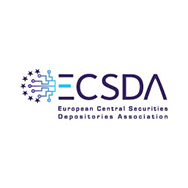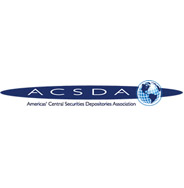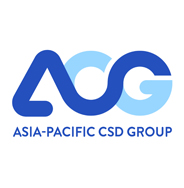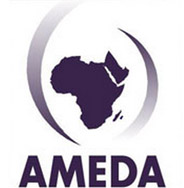Вступительное слово Эдди Астанина для Global Custody Handbook
Three years ago, at the 11th International Conference of Central Securities Depositories (CSD11) in Cape Town, the five existing regional associations of CSDs announced the creation of an inter-regional organization, the World Forum of CSDs or “WFC”. In May 2013, at the subsequent CSD conference in St. Petersburg, the WFC further reinforced its status as an international platform for interactions between CSDs from across the world.
The WFC, which traditionally meets twice a year in different countries, represents a unique and most respected platform for exchanging experiences and discussing new challenges in the post-trading industry where CSDs play a fundamental role. The Forum may also invite representatives of regulators, central banks, service providers, international banks, custodians, and other professional financial market participants to its events. Now, the World Forum of CSDs unifies more than 125 members from the five regional associations. The key role of the WFC is to collectively elaborate on and present the positions of regional associations and their members on crucial issues related to regulating and developing efficient global financial market infrastructures. In particular, the WFC is focused on developing communications between the CSD industry and regulators, and with the largest market organizations, including the World Bank, the Cross-Border Regulatory Forum (CBRF), the Association of Global Custodians (AGC), the International Organization of Securities Commissions (IOSCO), the International Securities Services Association (ISSA) and the Committee on Payment and Settlement Systems (CPSS).
The CSD landscape faces new challenges
The effects of the global financial crisis led most regulators to develop and undertake new measures aimed at strengthening control over financial markets, their participants and infrastructure. Striving to increase transparency, develop standards, unify and fully control the financial sphere, governments have introduced new requirements and legal changes that require thorough examination by all impacted actors, and sometimes more global harmonization. However, there may now be a downside effect, which is that financial markets may become ‘overregulated’, thereby decreasing efficiency. These developments impact CSDs and their users to a large extent.
Within the standardization and control process for instance, it is very important to keep a balance between the interests of all financial market participants. Regulation and standards should contribute to market development and, what is very important in an era of globalization, to simplify cross border transactions and settlements. This forms the basis of one of the WFC's key objectives, i.e. harmonizing cross-market and international standards –allowing regulators and market participants to receive the required transparency, manage risks, on the one hand, while also ensuring the necessary standards for a dynamic industry.
The importance of harmonization in financial markets goes hand in hand with the increasing role of the post-trade infrastructure. Differences in the working standards and legal aspects of various markets can be a source of additional risks and costs. On the positive side, if these cross-market factors are removed and if the financial infrastructure conforms with international operating activity standards and risk management, investors’ interest and appetite in new instruments and markets increases.
For instance, to promote harmonization and standardization of the post trade industry, a special WFC task force was set up in 2012 to implement a Single Disclosure project for CSDs across the globe. The project’s objective is to help the infrastructural institutions of the financial market form a unified standard for collecting and preparing information for disclosure, in particular, to form unified norms in accordance with CPSS-IOSCO and Association of Global Custodians (AGC) requirements. It is important to realize that the WFC has no intention of modifying the scope and content of the CPSS-IOSCO Disclosure Framework and of the AGC questionnaire, but is rather exploring ways to encourage all CSDs to regularly contribute to both disclosure exercises by streamlining and facilitating the collection of the required information. The first results of the research conducted by the Single Disclosure Project task force were shared with CPSS-IOSCO and AGC representatives in May 2014 and further developments are expected by the end of this year. In my opinion, the positive feedback received so far reflects the correctness of the selected format and the WFC tasks. Moving forward, the Task Force will look to procure a suitable online tool for the WFC's Single Disclosure Questionnaire project.
Development of financial market infrastructures and the CSDs
Integrating the regional post trade infrastructure organizations, the WFC represents a unique platform for information and experience exchange. The importance of this information interaction can hardly be overestimated – the WFC has a universal function, playing the role of an accumulator of information and knowledge from the different markets. This source provides efficient assistance for regional associations seeking topical solutions for their markets at various stages of development.
Another market development supporting global integration is the establishment of links between the CSDs as channels for moving investor liquidity. In recent months, we have seen a number of initiatives within this sphere: links between Euroclear and DTCC, the Link Up Markets Project, the Global Liquidity Hub project promoted by Clearstream, and links between the NSD and ICSDs, etc. This issue is included in the WFC agenda, and it certainly contributes to the development of relations between WFC participants and their business development.
Now, global financial markets are very volatile, and the global economy is unstable. According to experts, this situation will not change in the future. Moreover, the instability may deepen; risk management, therefore, becomes more important. The financial market infrastructure can also become a source of significant risks for the financial system, especially in crisis periods. The recent 2008-2009 financial crisis revealed a burning need for efficient risk management for infrastructure organizations. In 2013, the WFC Board made the decision to form a special task force to coordinate and harmonize the implementation of CPSS-IOSCO principles for financial market infrastructures.
There are numerous issues on the WFC agenda; in this article, I highlighted the most important ones. Within the framework of the WFC, we continue preparing the most important event for the CSDs - The World Forum of CSDs conference (WFC 2015) will be held next year in Cancun, Mexico. The American Central Securities Depositories Association (ACSDA) will be the forum’s organizer. I am confident that the forum will help us get answers for many challenges that the CSD industry faces.
К списку новостей




